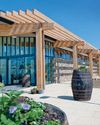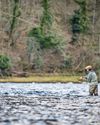
WE ALL know honeybees, and the majority of us are equally familiar with bumblebees, even if we struggle to name them individually, but solitary bees? They are a huge group that most of us know little about, but of the 270 species of bee found in Britain, nearly 250 of them are what are known as solitary bees. If that sounds a lot, some 20,000 bee species have been described worldwide, and there are surely many more yet to be named. For the record, there are 24 species of bumblebees to be found in these isles, along with the single species of honeybee.
Few of the solitary bees have English names, while specific identification is usually a challenge even for experts. A small number are easy to name but for most a microscope is needed: the submarginal cells on the forewing are of great value in specific identification, as is the form of the tongue. It’s a highly complicated business and explains why so few have anything other than a scientific name.
Solitary bees are aptly named, as they don’t live in colonies like honeybees or most bumblebees. None use hives, while more than half of them nest in the ground, where they excavate their own chamber. However, the solitary bees are a remarkably diverse and varied lot, so quite a number of them play by a different set of rules. Some build so-called ‘aerial nests’, typically taking over old beetle holes in vegetation. We also have one species of solitary bee, a small metallic-blue insect called Ceratina cyanea, that excavates its own aerial nest, usually in bramble stems. It digs out the pith of the stem to create the space to lay its eggs. There is also a trio of snail-shell-nesting bees, using empty shells for their nests – a remarkably sensible arrangement.
هذه القصة مأخوذة من طبعة June 2023 من The Field.
ابدأ النسخة التجريبية المجانية من Magzter GOLD لمدة 7 أيام للوصول إلى آلاف القصص المتميزة المنسقة وأكثر من 9,000 مجلة وصحيفة.
بالفعل مشترك ? تسجيل الدخول
هذه القصة مأخوذة من طبعة June 2023 من The Field.
ابدأ النسخة التجريبية المجانية من Magzter GOLD لمدة 7 أيام للوصول إلى آلاف القصص المتميزة المنسقة وأكثر من 9,000 مجلة وصحيفة.
بالفعل مشترك? تسجيل الدخول

Rory Stewart - The former Cabinet minister and hit podcast host talks to Alec Marsh about the parlous state of British politics, land management and his deep love of the countryside
The gently spoken 51-year-old former Conservative Cabinet minister is a countryman at heart. That's clear: he even changes into a tweed waistcoat for the interview, which takes place at his London home and begins with a question about his precise career status. Having resigned from the Commons and the Conservative Party in 2019, the former diplomat and soldier has reinvented himself, first with an unconventional but promising run as an independent for the London mayoralty (abandoned because of COVID19 in 2020) and then as a media figure, co-hosting one of the country's most popular podcasts, The Rest Is Politics, alongside Alastair Campbell, the former Labour spin doctor.

Fodder
Local fare with the feel-good factor.

Celebrating the game changers
Once served only in the traditional manner, the fruits of our forays now find their way into all manner of diverse and delicious dishes, say Neil and Serena Cross

The first civil engineer
John Smeaton left an indelible mark on the field of engineering and, three centuries after his birth, his legacy remains as strong as ever

School spirits
From grey ladies and ghostly gardeners to more malign entities, public schools are a rich repository of unnatural phenomena

'A long way from Piccadilly or Pall Mall'
Marking 150 years since the birth of Sir Winston Churchill, Dr Conor Farrington explores this eminent statesman’s often-overlooked 1907 tour of British East Africa: a journey rich with enchanting natural beauty and sporting adventure

Top of the pups
Canines in all their guises were celebrated at The Field Top Dog Awards lunch at Defender Burghley Horse Trials whether eager on the peg, patient at home or perpetually making mischief

Angling for success
It’s never too early to shape up for next season’s salmon and trout, and these top fishing schools are here to help

Talking scents
The canine nose is an astonishingly complex piece of biotechnology that man has harnessed for sustenance and sport for thousands of years

Wall-to-wall excitement
Criss-crossed by formidable drystone walls, the High Peak Harriers’ scenic country provides a day out with an exhilarating difference